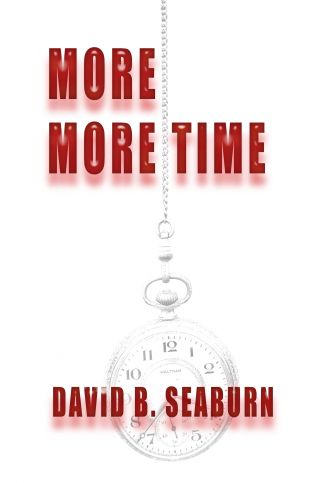
When our granddaughter, Gianna, six, was about eighteen months old, we had a special game she loved to play. I’d take hold of her wrists as she collapsed onto the hardwood kitchen floor and I’d pull her this way and that, swishing her all about while she laughed and screamed with delight. When my arms felt like they might fall off, I’d say, “One more time, Gianna.” She’d think I was saying “more more time,” which always sounded like a better idea. Soon every time I walked through the front door, she’d call out, “More more time, Papa!” She could never get enough.
At the time I was a recent retiree, so the idea of never having enough time, of always wanting “more more time,” rang true. Not because I didn’t have any time. I did. But because I was more aware than ever that time is limited, that time is on the move and doesn’t stop for anyone.
I decided then and there that my next novel would be entitled “More More Time.” Last week, that novel was released by my publisher. It is dedicated to Gianna and her sister, Makayla.
Gianna’s game is reprised in the novel during a conversation between Maxwell Ruth (a cantankerous, 62-year-old, high school history teacher who has a rather bleak view of things), and the new love of his life, Constance Young, (who tends to be a more optimistic sort). They are talking about losses in their lives, Max’s mother and father, Constance’s husband, Gerry, when Max tells Constance how disappointed he is with what he’s done with his life. Worse, he worries about his future being so much shorter than his past. After a long pause, Constance speaks:
"My granddaughter is five years old. Her name is Elena, and when she was about eighteen months old, she loved to play this made-up game with me whenever I came to visit. She would lie on the hardwood kitchen floor at my son and daughter-in-law's house and ask me to pull her around the floor by her arms. She'd laugh hysterically as she swished back and forth, around and around until my arms felt like lead. When I was completely out of breath and ready to drop, I would say, ‘One more time, Elena,’ but she thought I was saying ‘more more time.’ Soon that's what she thought the name of the game was, so when she'd meet me at the door, she'd flop down on the floor and yell, ‘More more time, Grandma, more more time!’ She couldn't get enough of that game."
Max raised his eyes slightly, spying Constance's smile across the table. She took her glasses off and laid them in her lap, her blue eyes deep, the corners crinkled. She looked down at her glass and then up again.
"We're like her; we never want the game to end. More, more time is what we all want. If only my husband had lived longer. If only your mother had lived longer. What? What would have been different? I don't know. Once I accepted Gerry's death, I swore that I would never again expect anything to last forever, that I would never again pretend that there would always be more, and, you know what, every once in a while, I can do that, and when I do, life's a little sweeter."
When I teach writing, I always tell folks that all fiction is autobiographical. By that I don’t mean that all fiction is a reworking of the author’s life (although pieces often find their way into the narrative; thanks Gianna!). What I do mean is that the themes, the struggles, the joys, the uncertainties of the author shine through. And that if you read several books by the same author, you will get a good idea what is important to him or her.
This passage from "More More Time" is not only about my love for my granddaughter, it is about my own wrestling match with the mist of time. Max’s discouragement about the limited amount of time we are given reflects what I often feel. Constance’s story about life being sweeter when she doesn’t assume there is more is what I often think.
What I hope is that I can integrate my feelings and thoughts, that I can face and accept the limits of time, yet celebrate "more more time" as it springs from the limitless wonder of each moment.
To learn more about David B. Seaburn’s latest novel, "More More Time," go to: http://www.amazon.com/More-Time-David-B-Seaburn/dp/0991562232


